Despite many issues existing in the African agricultural sector, its production is quite large and diverse, as illustrated on the graph below. The continent is well-known for growing roots and tubers, like yam, cassava, potato, dasheen, macabo and sweet potato, sugar cane, and corn. As of 2021, Africa* has a fascinating 40% share in global production of roots and tubers. The production of cereals and tubers is less affected by extreme weather conditions, making them predominant in agricultural production.
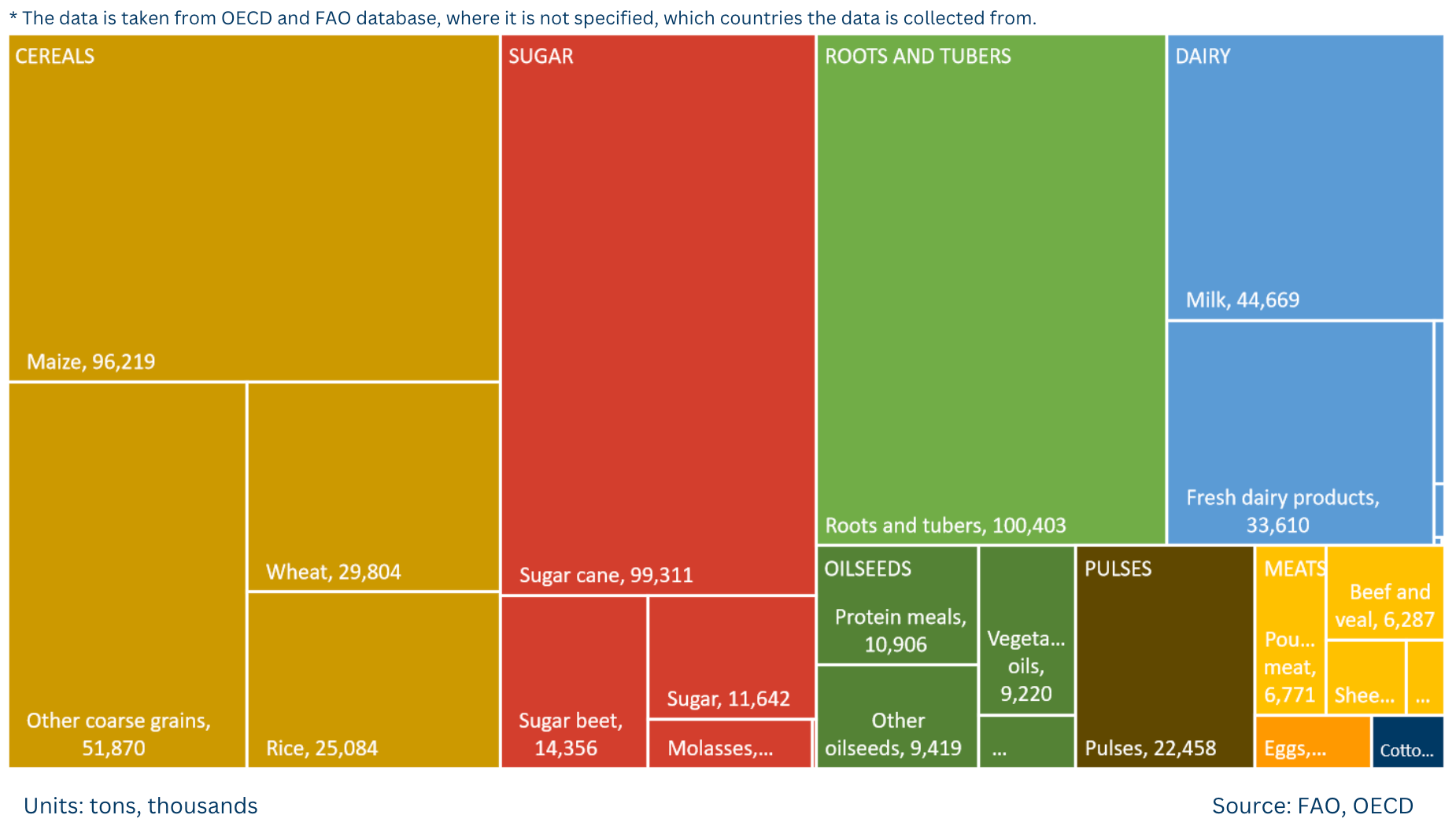
Consumption structure slightly varies from the production one. In 2021, cereals represented over 50% of the total commodity use, followed by roots and tubers. Corn was the most commonly used product in Africa*, accounting for more than 20% of agri-food consumption. Corn is found in typical African meals, such as ugali, fufu, banku and others, and is common for animal feed. As for roots and tubers, they are also prevalenе in the African diet, especially cassava and sweet potato. Conversely, meat is rarely consumed due to religious restrictions, limited availability, and cultural specifics.
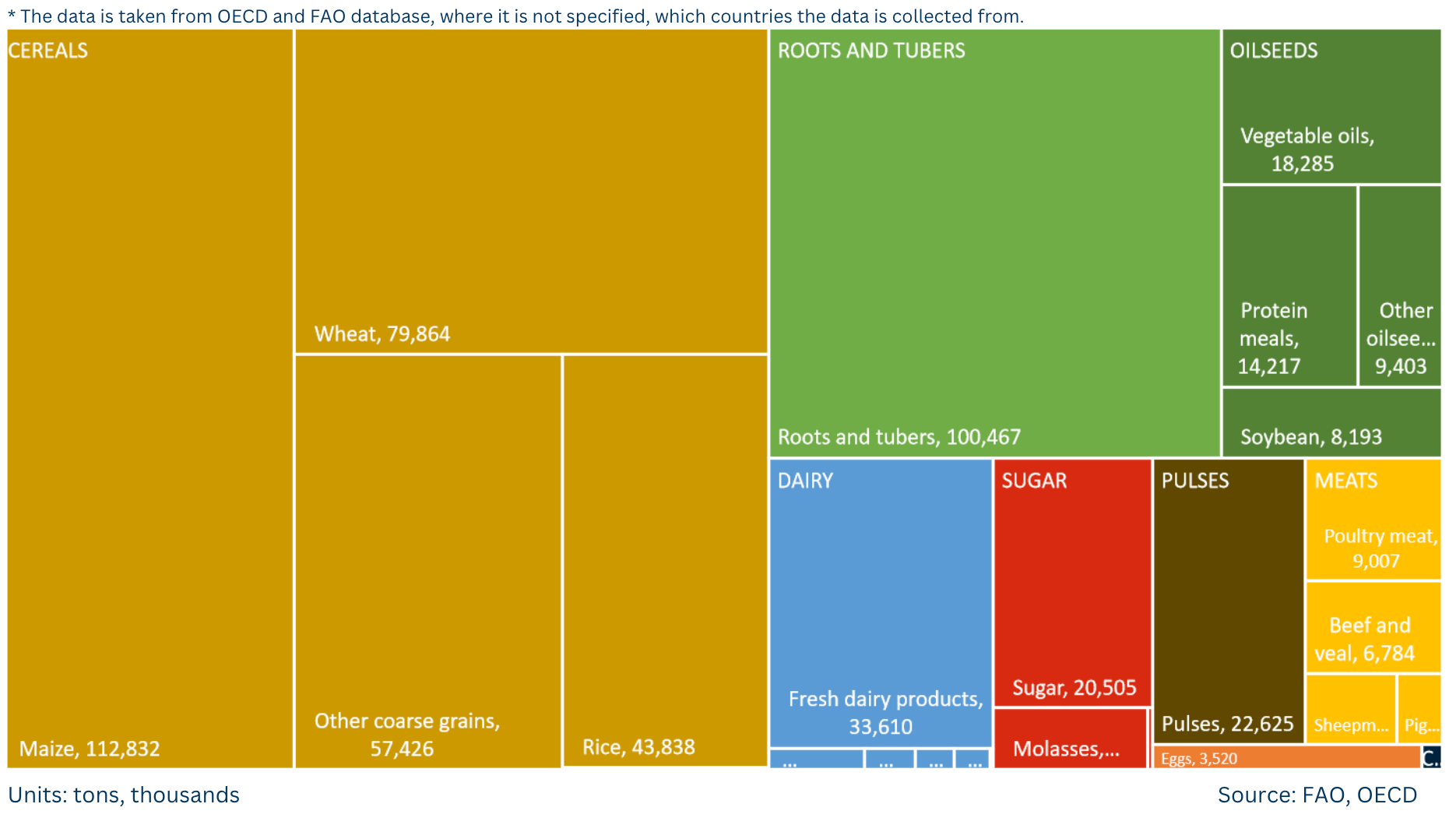
In 2021, Ukraine exported 13 million tones of agricultural products worth $ 3.8 billion to 52 out of 54 countries in Africa. Out of these 52 African countries, Egypt was the largest importer of Ukrainian agri-food products, accounting for 42% of the total export value. Following Egypt were Libya, Morocco, Tunisia, Ethiopia, Algeria, Nigeria, Kenya, Djibouti, and Sudan.
Ukraine is officially represented in 10 African countries and 10 more embassies are planned to be open. The map shows that the presence of a diplomatic mission positively influences trade.
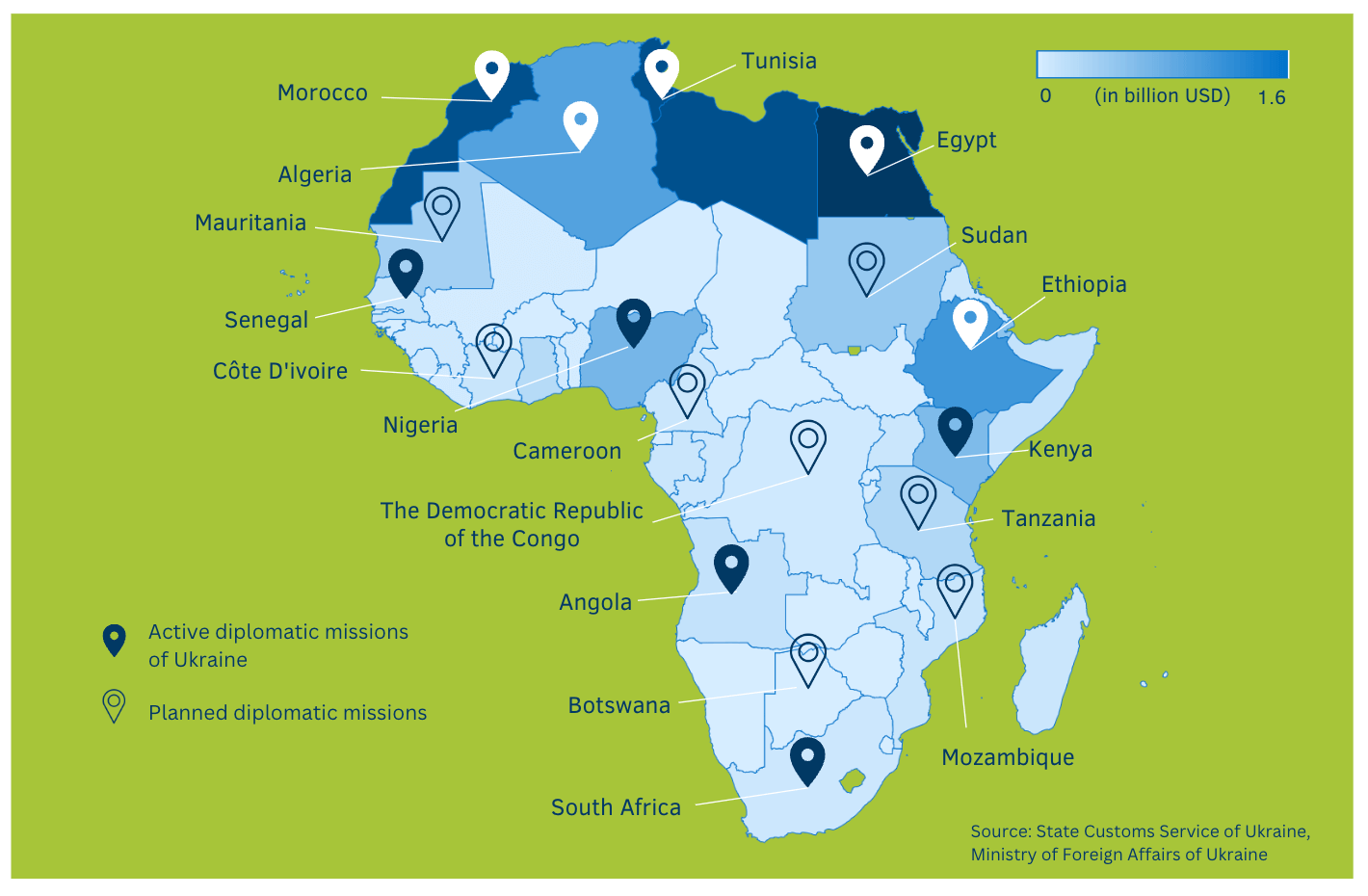
The African countries are strongly dependent on imported wheat. In 32 out of 40* countries the share of import in consumption is higher than 70%. In 2021, 60% of the countries have imported wheat from Ukraine. The following countries are particularly dependent on Ukrainian wheat: Libya (48%)**, Eritrea (37%), Tunisia (36%), Ethiopia (36%), Egypt (29%), Mauritania (26%), Morocco (21%), and Kenya (17%).
In contrast to wheat, the majority of countries in Africa do not rely on imported corn, but rather prioritize domestic production. In fact, only 14 out of 42* countries imported more than 18% of their corn requirements in 2021. This is because corn is the third most cultivated commodity on the continent. Despite the emphasis on domestic production, such countries as Egypt, Algeria, Tunisia, Libya, and Mauritania receive a noteworthy portion of corn from Ukraine to meet their demands.
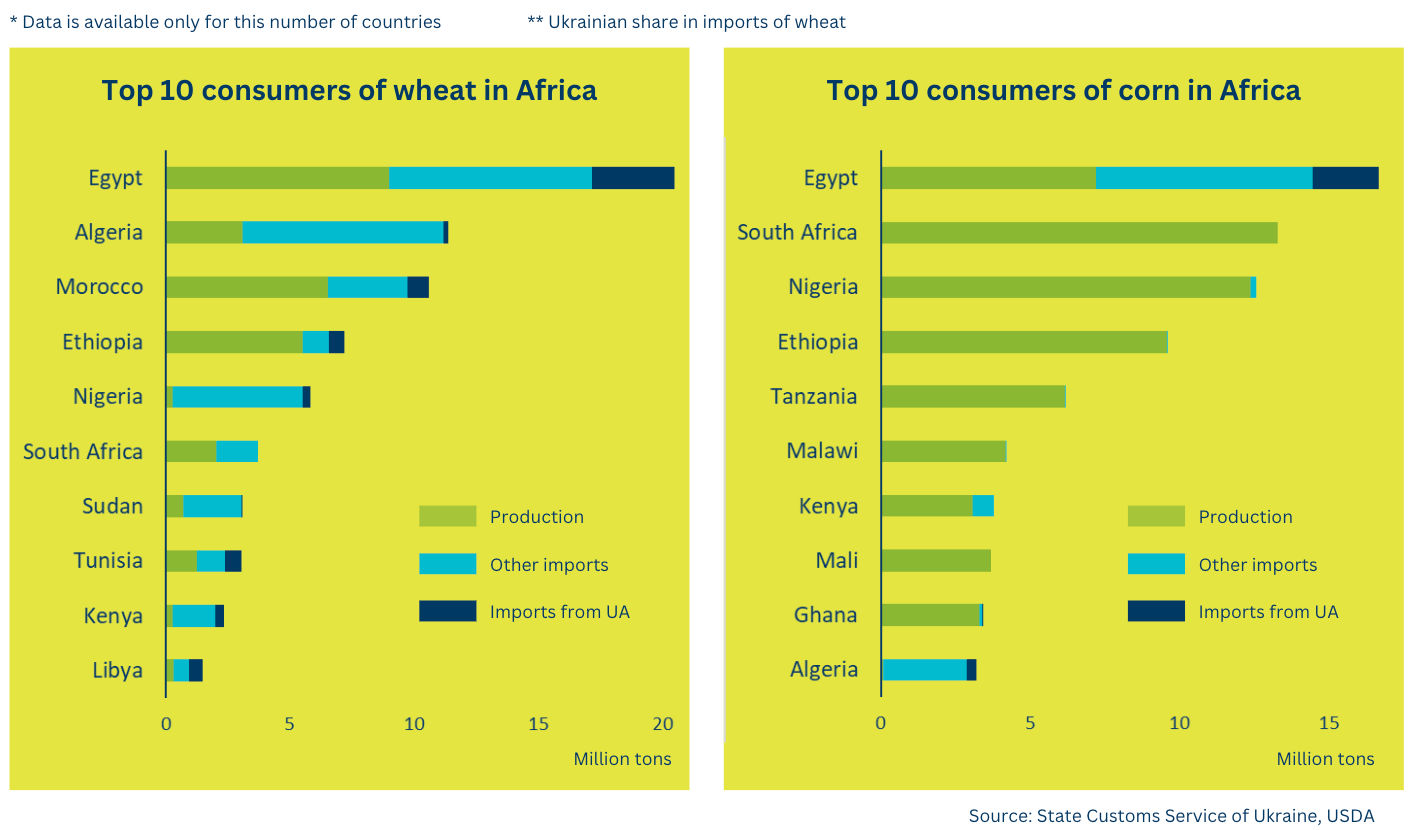
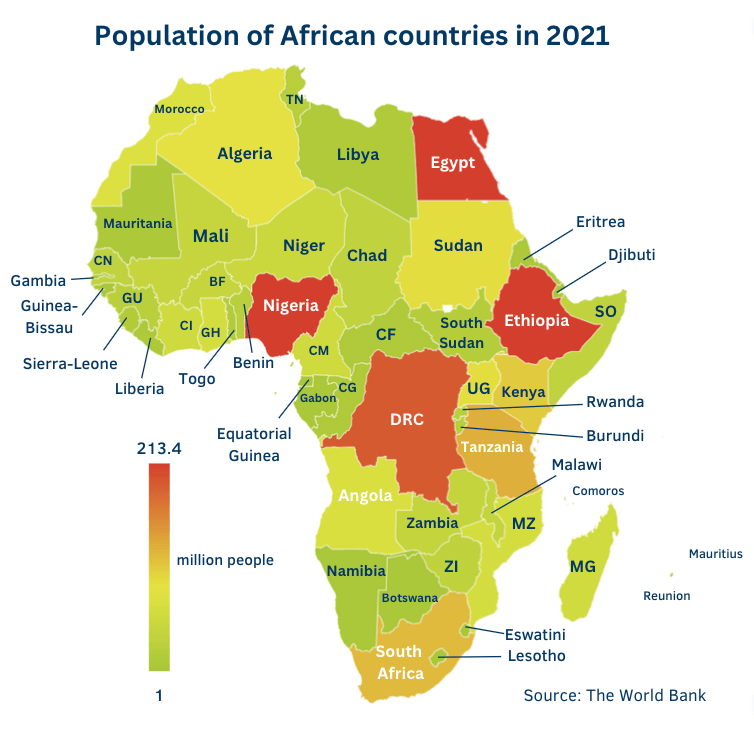
Africa’s population continues to grow rapidly, with the continent having a population of approximately 1.4 billion people according to the World Bank.
As the population continues to grow, the demand for food increases, putting a strain on the agricultural sector and making the state of food security even worse. Many regions in Africa are experiencing water scarcity, which affects agriculture, sanitation, and access to drinking water. Furthermore, such a rapid increase in population has led to high levels of unemployment, resulting in even deeper poverty. Among the other side effects are political instability due to competition for resources and political power.
Ukraine’s partnership with African countries could help develop sustainable agricultural practices and address the food security problem by supplying more agri-foods to Africa.
*List of LIFDCs was last updated by FAO in June 2021
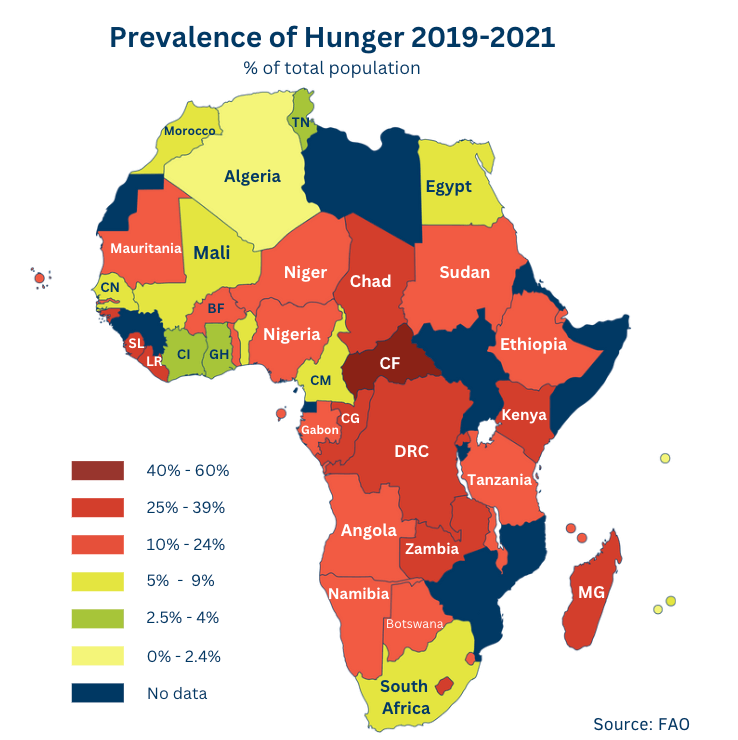
Unfortunately, most of the countries with the highest percentage of undernourishment among populations are located in Africa. Despite ongoing efforts to fight food insecurity, hunger remains prevalent among a significant portion of the population.
Of the 36 Low-Income Food-Deficit Countries (LIFDCs) located in Africa, 33 imported agricultural products from Ukraine in 2021. This highlights the critical role that Ukraine plays in providing food resources to the African region.
Establishing strong diplomatic relations between Africa and Ukraine could increase the amount of food supplied to the region, reduce the number of undernourished people and improve food security in Africa.
* List of LIFDCs was last updated by FAO in June 2021
If you have any questions, feel free to contact us at [email protected]
